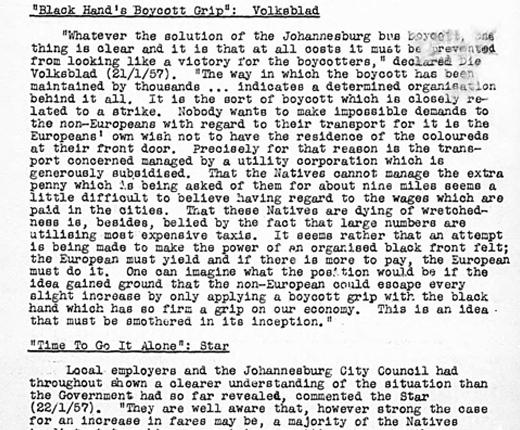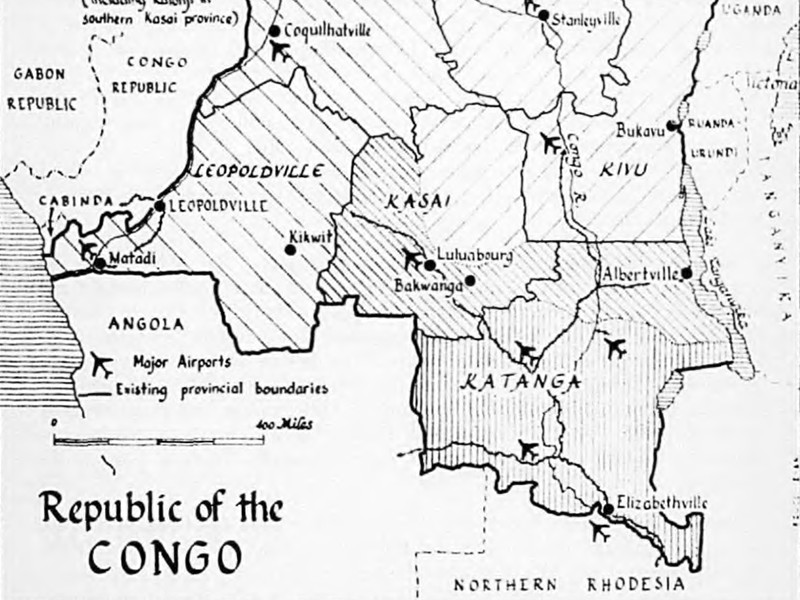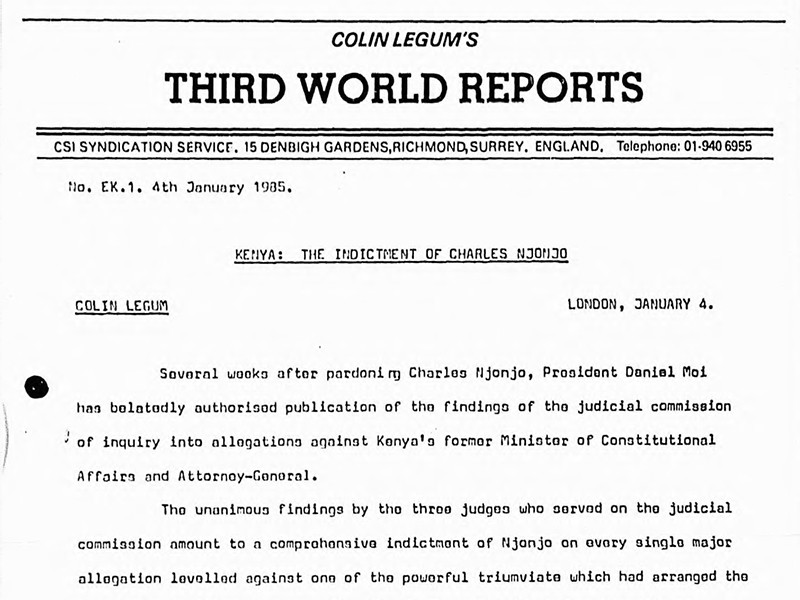
Reporting on Africa: From Apartheid to Pan-Africanism, 1949–1995

Selected papers from the personal library of Colin Legum, 1949–1995
In nearly half a century of reporting on Africa, the journalism and scholarly work of Colin Legum... earned him recognition as the British media's premier analyst of African affairs.Obituary
Access the full collection
Access the full archive of Reporting on Africa: From Apartheid to Pan-Africanism, 1949–1995.
Institutional Free Trial
Start your free trialRegister for a free 30-day trial of Reporting on Africa: From Apartheid to Pan-Africanism, 1949–1995, for your institution.
Institutional Sales
Visit Sales PagesellFor more information on institutional access, visit our sales page.
Single User License
Purchase a license below to view the full collection.
Already have a license? Sign in.
Study journalistic reports into the politics of Africa, from Apartheid to decolonisation

Colin Legum (1919–2003) was a South African journalist and writer on African politics. Born in the rural farming town of Kestell, his worldview was shaped by the degrading poverty and racial injustice he witnessed in his hometown. This experience fed his passion for political reporting and he got his first job in journalism at the age of 15 for a Johannesburg newspaper called the Sunday Express. Legum could not tolerate the Apartheid government that seized power in South Africa in 1948 and left for Britain the following year. Working for the Observer, he became well known for his anti-Apartheid writing and helped popularise African history within the British public.
This collection contains a range of his writings and reports on twentieth century African politics. This includes material on Pan-Africanism, including on the Organisation of African Unity, articles documenting and attacking the Apartheid regime in South Africa, as well as an exploration of African politics against the backdrop of decolonisation and the Cold War. Legum only returned to South Africa in 1991 when he was politically able to, living there until his death in 2003.
Contents
Reporting on Africa: From Apartheid to Pan-Africanism, 1949–1995...
Selected papers from the personal library of Colin Legum, 1949–1995
Discover
Highlights

Licensed to access Pan-Africanism: Head of State’s Conference, 1963

Licensed to access 'Press Digests’ from Apartheid South Africa, 1967
Insights
This collection is drawn from the career of Colin Legum, a South African journalist who specialised in political reporting on Africa.
One key theme within the collection is Pan-Africanism, which is the worldwide movement to nurture solidarity between indigenous and diasporic ethnic groups in Africa. This includes material related to the Addis Ababa Charter, the Organisation of African Unity, and other summits and conferences aimed at garnering Pan-African unity.
The collection also includes weekly press digests from South Africa during the Apartheid regime, which detail how events were reported by various media outlets. Apartheid, literally meaning ‘apartness’ in Afrikaans, was a system of institutionalised racial segregation introduced by the National Party that discriminated in favour of the minority white population.
Miscellaneous content in this collection also covers journalistic reports on colonialism and independence, Africa’s position in the Cold War, and the internal politics of various African nations.
Unlock Historical Research for Your Institution
Provide your students and researchers with direct access to unique primary sources.
Related Media





.svg)





